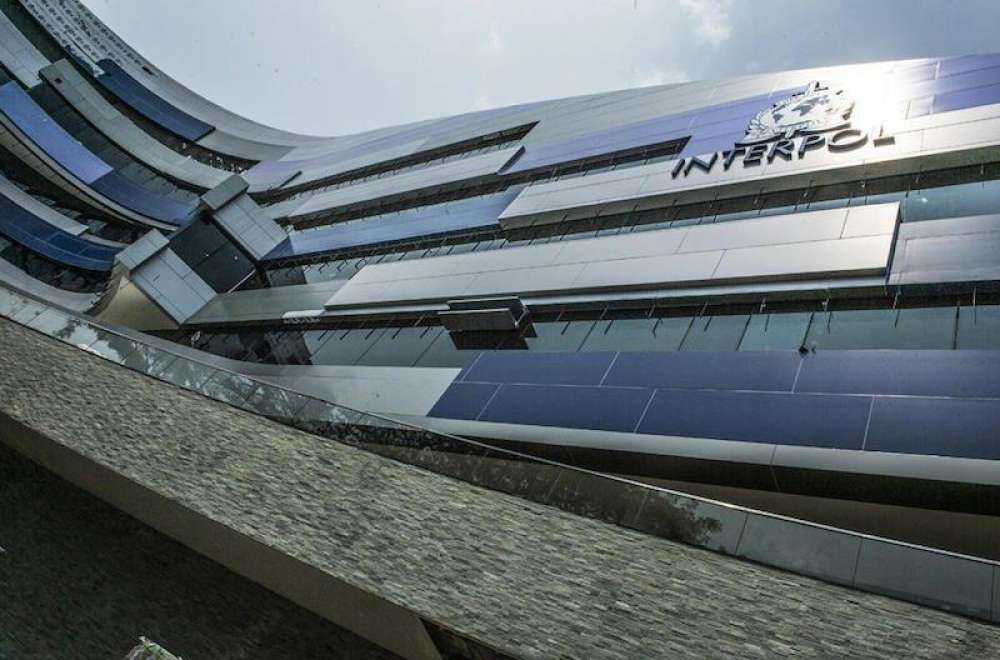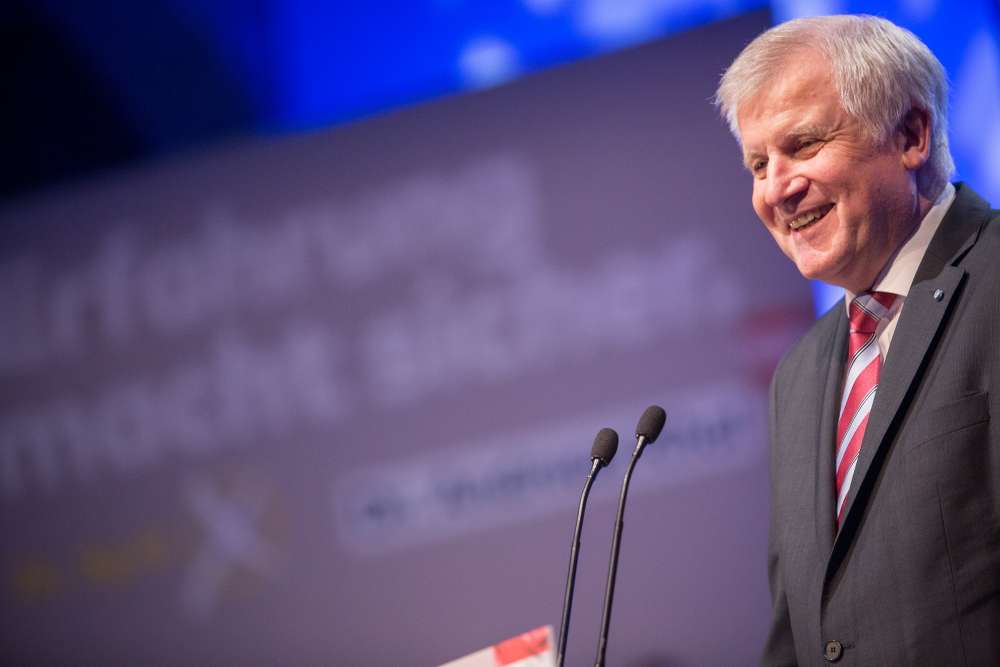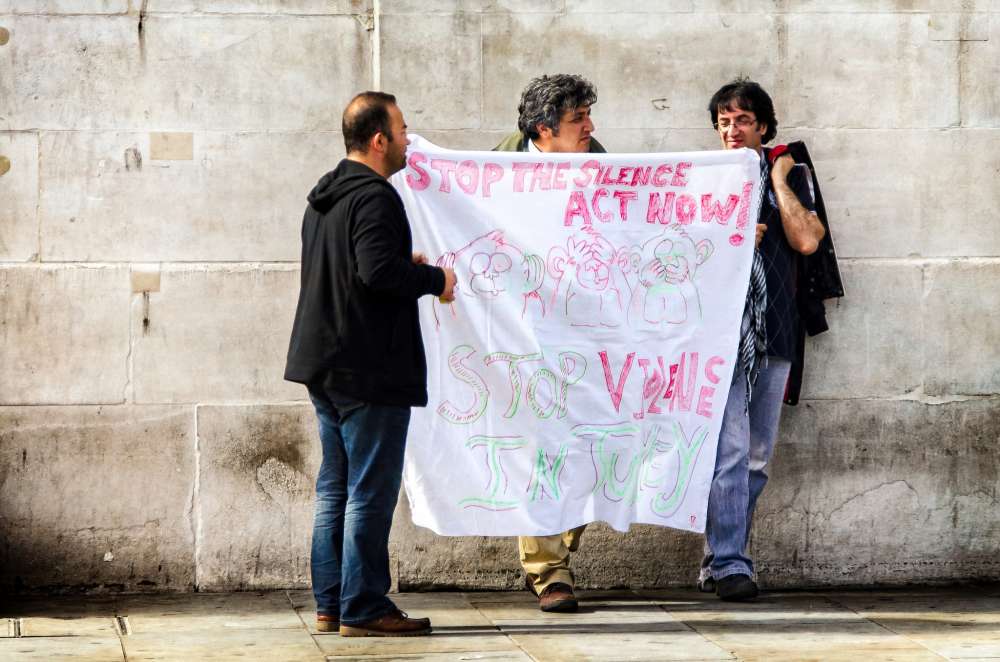How Interpol Can Be Protected From Despots

On August 19, in Granada, the Spanish police detained the author Dogan Akhanli, a German citizen of Turkish origin, because the international police organization Interpol had issued a red notice for a worldwide search. The German government reacted swiftly and clarified to the Spanish government that Akhanli is not a criminal but a regime critic whom the Turkish government has persecuted for political reasons. Akhanli’s detention in Granada has given rise to an intense public debate in Germany about how Interpol can be protected from misuse by authoritarian governments. The arrest of Akhanli is unfortunately not an isolated incident. It is just the most recent example of how despots can use Interpol’s red notices for political persecution beyond borders.
A red notice, distributed internationally via Interpol, is an easy, cheap, and effective means for authoritarian governments to harass regime critics who live abroad. Even if a red notice does not lead to extradition (because the government responsible for the arrest uncovers the notice’s underyling political motivation and therefore does not grant the extradition request), the notice still has a repressive effect: it criminalizes the regime critic, damaging their reputation, and it curtails their freedom to travel.
German Chancellor Merkel, reacting to the arrest of Akhanli, accused Turkey of misusing Interpol. Her accusation is correct, but how can the internationalization of political persecution through Interpol’s red notices be prevented in the future?
Interpol’s legal department in Lyon already reviews all requests made for red notices. Twenty-four employees work in a specialized task force to uncover and prevent misuse. Each year, the organization approves more than 10,000 red notices for circulation, and no doubt it does not manage to identify all cases of politically motivated misuse. Interpol, however, does not have a mandate to request arrests; its sole responsibility is the exchange of information on criminal suspects. This is why national central bureaus, for example Germany’s Federal Criminal Police Office (BKA), must review each red notice again before an arrest warrant appears on police computers.
While staff capacity for these review procedures is certainly a challenge, the more fundamental problem is frame-up. Authoritarian governments do not openly declare the political motivation behind requests that target dissidents. They fabricate alleged evidence for criminal offences, as in the case of Akhanli. To more effectively fight the misuse of Interpol by despots, three steps should be taken. First, the existing review mechanisms need to be better connected and supported by Interpol’s democratic member states. Second, objections against running searches need to be simplified. Third, the authoritarian influencing inside the Interpol organization needs to be decisively pushed back.
When democratic Interpol member states come to the conclusion that a specific red notice might be politically motivated, they should immediately inform Interpol and ask the general secretariat to issue a warning that the red notice might violate article 3 of Interpol’s founding statutes. In clear cases of misuse, they should demand deletion of the red notice. As of today, some national central bureaus occasionally inform Interpol about suspicious cases. This is also done by the German BKA. The practice should be systematized. In addition to informing Interpol, democratic governments should issue a demarche to the government that requested the red notice. Instead of acting alone, European countries should issue such diplomatic notes of protest in the name of the entire EU.
For this to happen, the European Union ought to strengthen its own information exchange on questionable red notices. A closer cooperation of Europol and Interpol has already been agreed upon, but there is still no possibility to suspend red notices for the EU territory. To date, only Interpol itself can initiate a suspension or deletion of red notices. To guarantee free movement of critical journalists, authors, and civil society activists within Europe’s borders, the EU must assume responsibility. Governments can also seek bilateral guarantees from other countries and not only react after an arrest has been made. Had there been such an understanding between Spain and Germany, Akhanli could have spent a relaxed vacation in Granada.
In cases where neither the general secretariat of Interpol nor the national central bureau manages to identify the political character of a search, those concerned need a possibility to object. The responsible Commission for the Control of Interpol’s Files was recently strengthened with a new mandate, including the authority for an independent exercise of its functions. This means that objections against the political misuse of red notices will very likely become easier in the near future. As specified in the new procedural directive, but to date not absolutely required, the commission should publish all cases of objection and the decisions taken. This is the only way transparency can be established, political persecution denounced, and future misuse minimized.
While procedural improvements are already underway, there has been no success on the political level in preventing the authoritarian takeover. The election of China’s vice minister of public security, Meng Hongwei, as president of Interpol in November 2016 was a serious and alarming signal. The next general assembly of the organization will take place in September of this year in Beijing, and the Chinese one-party state will use it as an occasion for internal and external propaganda. That Interpol’s democratic member states did not avert this scenario shows that the finesse of authoritarian propaganda is not understood, and that authoritarian influencing in international organizations is still not taken seriously enough.
Luckily, the daily work of Interpol is not led by the president but by the general secretary. This post has always been filled by democracies and is currently held by Jürgen Stock, a German. Nevertheless, there is no doubt that authoritarians exert influence in Interpol. This will be impossible to completely avoid, because the international fight against crime can only work if Interpol secures global cooperation. For this, authoritarian governments must be involved in information exchange on criminal suspects. But as long as a representative of an oppressive state represents Interpol, it will be impossible for the international police organization to credibly prevent authoritarian misuse. The four year term of Meng Hongwei should be observed very critically. By 2020 at the latest, democratic member states of Interpol should collectively ensure that a more trustworthy president gets elected. This will only be possible if a suitable candidate is identified early on and the necessary majority gets organized.
Even more important is the post of general secretary. The term of Stock will already be over in 2019. All of his predecessors came from Europe or the USA. In a globalized world, although it is not acceptable anymore to pick leaders of international organizations from such a small pool of countries, the next general secretary of Interpol should be a person with a strong track record with regard to rule of law, democratic norms, and human rights standards.
As soon as Dogan Akhanli is back in Cologne, Germany should work with other democratic governments to protect Interpol from the despots of this world and help the organization curb the current misuse of red notices for political persecution.
…
This is a slightly amended translation of a commentary that was originally published in German by Tagesspiegel on August 25, 2017.







